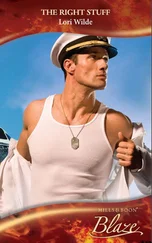Tom Wolfe - The Right Stuff
Здесь есть возможность читать онлайн «Tom Wolfe - The Right Stuff» весь текст электронной книги совершенно бесплатно (целиком полную версию без сокращений). В некоторых случаях можно слушать аудио, скачать через торрент в формате fb2 и присутствует краткое содержание. Жанр: Современная проза, на английском языке. Описание произведения, (предисловие) а так же отзывы посетителей доступны на портале библиотеки ЛибКат.
- Название:The Right Stuff
- Автор:
- Жанр:
- Год:неизвестен
- ISBN:нет данных
- Рейтинг книги:3 / 5. Голосов: 1
-
Избранное:Добавить в избранное
- Отзывы:
-
Ваша оценка:
- 60
- 1
- 2
- 3
- 4
- 5
The Right Stuff: краткое содержание, описание и аннотация
Предлагаем к чтению аннотацию, описание, краткое содержание или предисловие (зависит от того, что написал сам автор книги «The Right Stuff»). Если вы не нашли необходимую информацию о книге — напишите в комментариях, мы постараемся отыскать её.
The Right Stuff — читать онлайн бесплатно полную книгу (весь текст) целиком
Ниже представлен текст книги, разбитый по страницам. Система сохранения места последней прочитанной страницы, позволяет с удобством читать онлайн бесплатно книгу «The Right Stuff», без необходимости каждый раз заново искать на чём Вы остановились. Поставьте закладку, и сможете в любой момент перейти на страницу, на которой закончили чтение.
Интервал:
Закладка:
Nevertheless, the new breed had their share of the proper righteous stuff, same as the stick'n'rudder tigers of yore. Armstrong himself had flown more than a hundred missions off carriers during the Korean War, and had done good work in the X-15. Then you had men like Dave Scott and Mike Adams, who were two of Yeager's ARPS students. They were, practicing low lift-over-drag landings one day in the F-104. In this maneuver, which simulated an X-15 landing, you gunned the afterburner for speed (and stability) and flared the flaps and tried to grease the ship onto the runway at 200 knots. As Scott and Adams neared the ground, the "eyelids" on the afterburner malfunctioned, opening too wide, cutting the thrust down to 20 or 30 percent of maximum. Visually they could tell the ship was sinking too fast. Scott, who had the controls, gunned it but got very little response. They were dropping like a brick. Adams, in back, knew that the tail would hit the runway first, due to the angle of attack they were in, if Scott couldn't regain power. He told Scott over the radio circuit that if the tail hit he was ejecting. The tail hit, and in that moment he pulled his cinch ring and ejected at zero altitude. Scott elected to stay with the ship. The belly smashed onto the runway and the ship went careening down it and off into the mesquite. When the beast finally came to a halt, Scott looked back, and the engine was jammed up into the space where Adams used to be. Both men had made the right decision. Adams had been exploded up into the air and had come down safely by parachute. Scott's ejection mechanism had been broken in the torque of the initial impact and he would have been killed had he pulled the cinch ring, either by the nitroglycerine explosion or by a partial ejection.
Yeager was tremendously impressed by those two decisions by two men in the very mouth of the Gulp. There you had it, with the ante doubled: the right stuff. And when NASA had announced several months ago that a third group of astronauts would be chosen both men immediately applied, although Adams also seemed to have a sincere interest in the X-15 project. The X-15 pilots themselves had their eyes on Houston, for that matter. Armstrong had applied as soon as civilians had been eligible and was now a Group II astronaut. He had Joe Walker's blessing, too. Walker himself had considered applying but figured that his age—he was forty-two—pretty well ruled him out.
That was the way the pyramid was now constructed. The old argument—namely, that an astronaut would be a mere passenger monitoring an automated system—didn't have much sock to it any more. The truth was that there you had a picture of the pilot in practically all the hypersonic vehicles of the future, whether in space or in the atmosphere. The Mercury vehicle had merely been one of the first. Way back in April of 1953, Yeager had made a speech in which he said, "Some of the proposed fighters of tomorrow will be able to find and destroy a target and even return to their home stations and land by themselves. The only reason a pilot will be needed is to take over and decide what to do if anything goes wrong with the electronic equipment." Talking about the Ships of Tomorrow had made it all seem far off. But now, ten years later, they were already bringing such systems into the hardware stage. They were even working on a system to land F-4s automatically on aircraft carriers; the pilot would take his hands off the controls and let the computers bring him down onto that heaving slab. The supersonic transports and airliners would be so automated they would give the pilot an override stick just so he could push on it every now and then and feel like a pilot; it would be a goddamned right-stuff security blanket. They were even developing an automatic guidance system to bring the X-15 back through the atmosphere at a precise angle of attack. Maybe the age of "the flyboys," the stick'n'rudder fighter jocks, was about finished.
All of that Yeager could accept. On the great pyramid there was no steady state. Sixteen years ago, when he came to Muroc, he was only twenty-four, and few other test pilots had ever heard of him, and most people in aviation thought "the sound barrier" was as solid as a wall. Once he flew Mach 1, however, it was a whole new ball game. And now there were cosmonauts and astronauts, and it was a whole new ball game once again. A man could do a pretty good job of being philosophical about it. What finally got to Yeager, however, was the Ed Dwight case.
It had been early this year that Yeager got word from the brass that the President, John F. Kennedy, was determined that NASA have at least one Negro astronaut in their lineup. The whole process was to take place organically, however, as if in the natural order of things. Kennedy was leaning on the Defense Department, Defense was leaning on the Air Force brass, and they tossed the potato to Yeager. The pilot who had been singled out was an Air Force captain named Ed Dwight. He was to go through ARPS and be selected by NASA. The clouds developed soon enough. Dwight was enrolled in the basic flight test course along with twenty-five other candidates. Only the top eleven students could enter ARPS's six-month space-flight course, which had limited facilities, and Dwight did not rank among the top eleven. Yeager didn't see how he could jump him over other young tigers, all of them desperate to become astronauts. Every week, it seemed like, a detachment of Civil Rights Division lawyers would turn up from Washington, from the Justice Department, which was headed by the President's brother Bobby. The lawyers squinted in the desert sunlight and asked a great many questions about the progress and treatment of Ed Dwight and took notes. Yeager kept saying he didn't see how he could simply jump Dwight over these other men. And the lawyers would come back the next week and squint some more and take some more notes. There were days when ARPS seemed like the Ed Dwight case with a few classrooms and some military hardware appended. A compromise was finally struck in which Dwight would be admitted to the space-flight course, but only if every man who ranked above him was also admitted. That was how it came to pass that the next class had fourteen students instead of eleven and included Captain Dwight. Meantime, the White House, apparently, was signaling to the Negro press that Dwight was going to be "the first Negro astronaut," and he was being invited to make public appearances. He was being set up for a fall, because the chances of NASA accepting him as an astronaut appeared remote in any event.
The whole thing was baffling. On the upper reaches of the great ziggurat the subject of race had never been introduced before. The unspoken premise was that you either had the right stuff or you didn't, and no other variables mattered. When the seven Mercury astronauts had been chosen in 1959, the fact that they were all white and all Protestant seemed to be interpreted as wholly benign evidence of their Small-Town American virtues. But by now, four years later, Kennedy, who had been supported by a coalition of minority groups in the 1960 election, had begun to raise the question of race as a matter of public policy in many areas. The phrase "white Protestant" took on a different meaning, so that it was now possible to regard the astronauts as some sort of cadre of whites of northern European racial background. In fact, this had nothing to do, per se , with their being astronauts. It was typical of career military officers generally. Throughout the world, for that matter, career officers came from "native" or "old settler" stock. Even in Israel, which had existed for barely a generation as an independent nation and was dominated politically by immigrants from Eastern Europe, the officer corps was made up overwhelmingly of "real Israelis"—men born or raised from an early age in the pre-war Jewish settlements of the old Palestine. The other common denominator of the astronauts was that they were all first or only sons; yet not even this had any special significance, for studies soon showed that first or only sons dominated many occupations, including scholarly ones. (In an age when the average number of children per family was barely more than two, the odds were two out of three that any male would be a first or only son.) None of which was going to mollify the White House, however, because the astronaut, the single-combat warrior, had become a creature with greater political significance than any other type of pilot in history.
Читать дальшеИнтервал:
Закладка:
Похожие книги на «The Right Stuff»
Представляем Вашему вниманию похожие книги на «The Right Stuff» списком для выбора. Мы отобрали схожую по названию и смыслу литературу в надежде предоставить читателям больше вариантов отыскать новые, интересные, ещё непрочитанные произведения.
Обсуждение, отзывы о книге «The Right Stuff» и просто собственные мнения читателей. Оставьте ваши комментарии, напишите, что Вы думаете о произведении, его смысле или главных героях. Укажите что конкретно понравилось, а что нет, и почему Вы так считаете.











